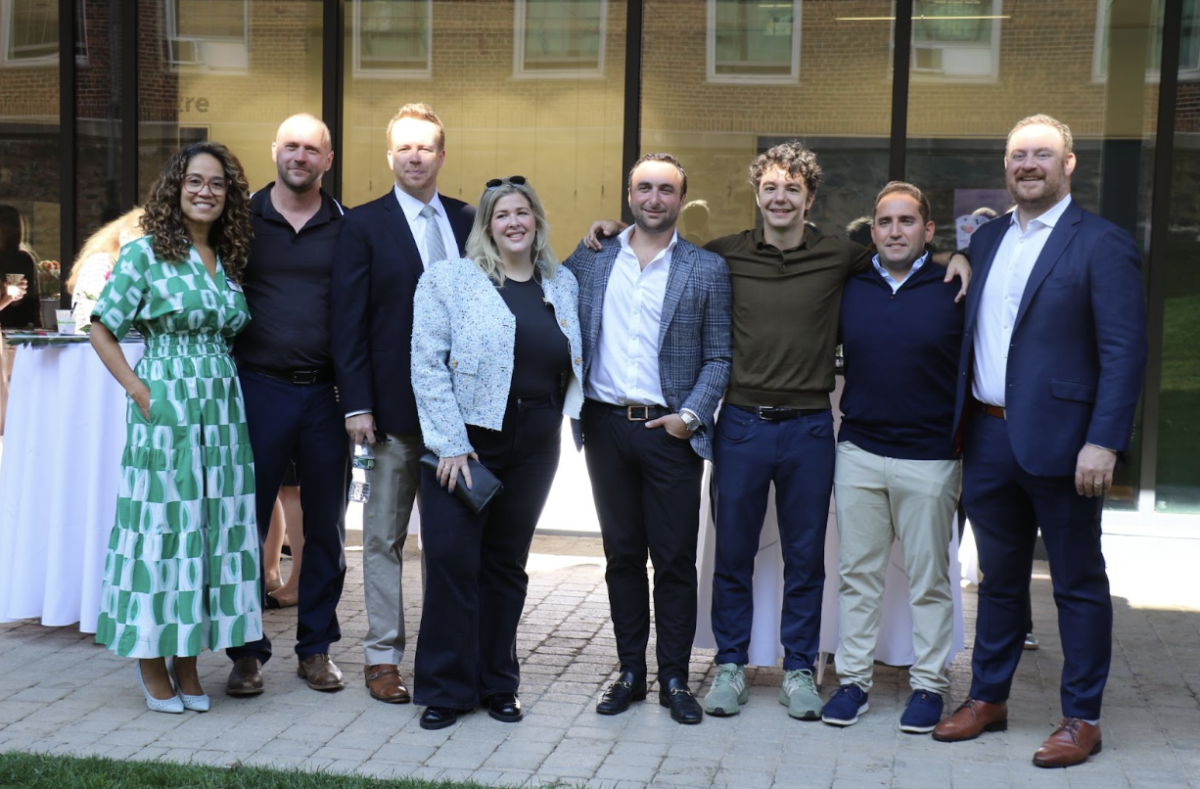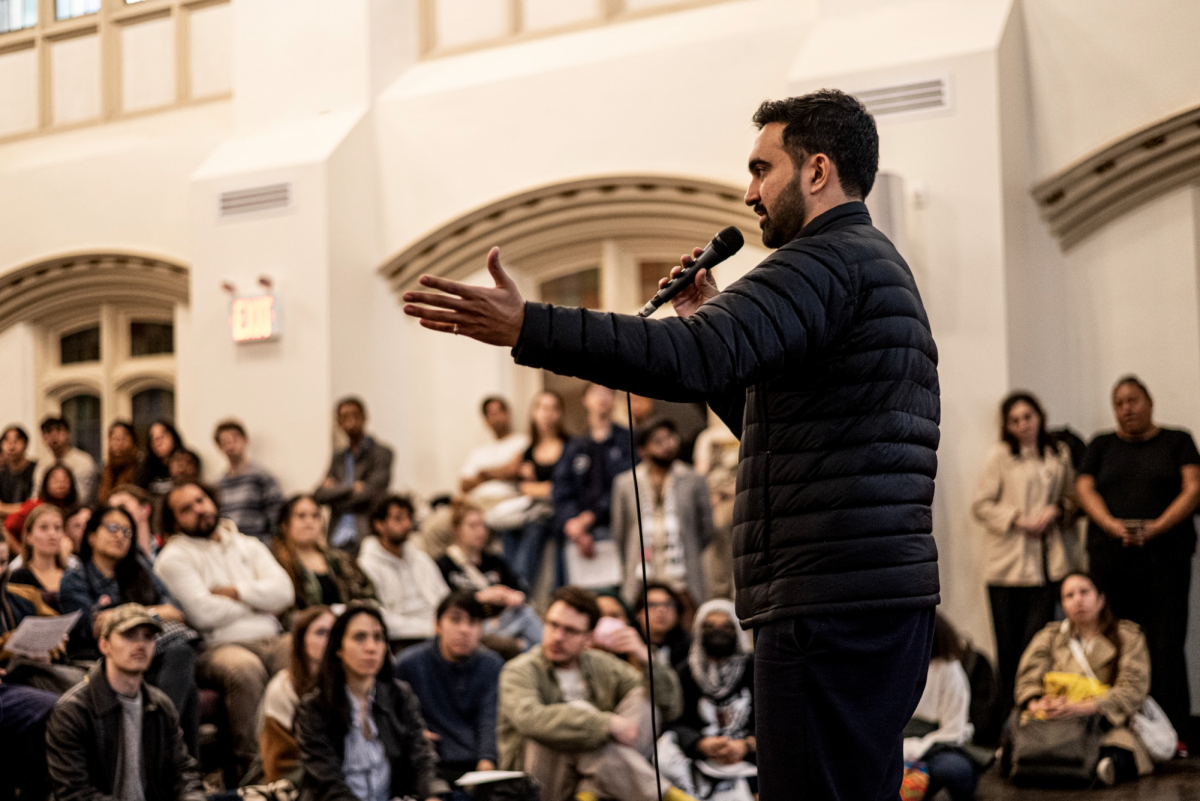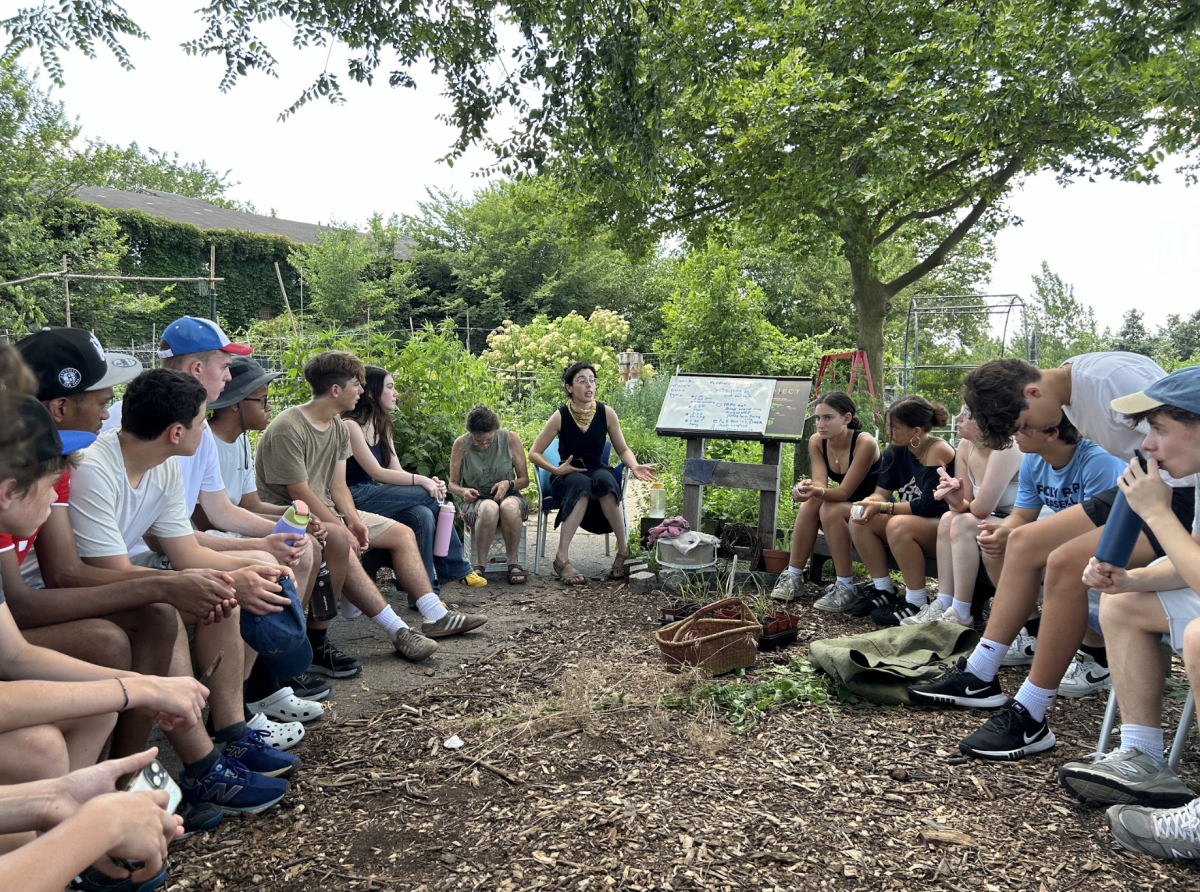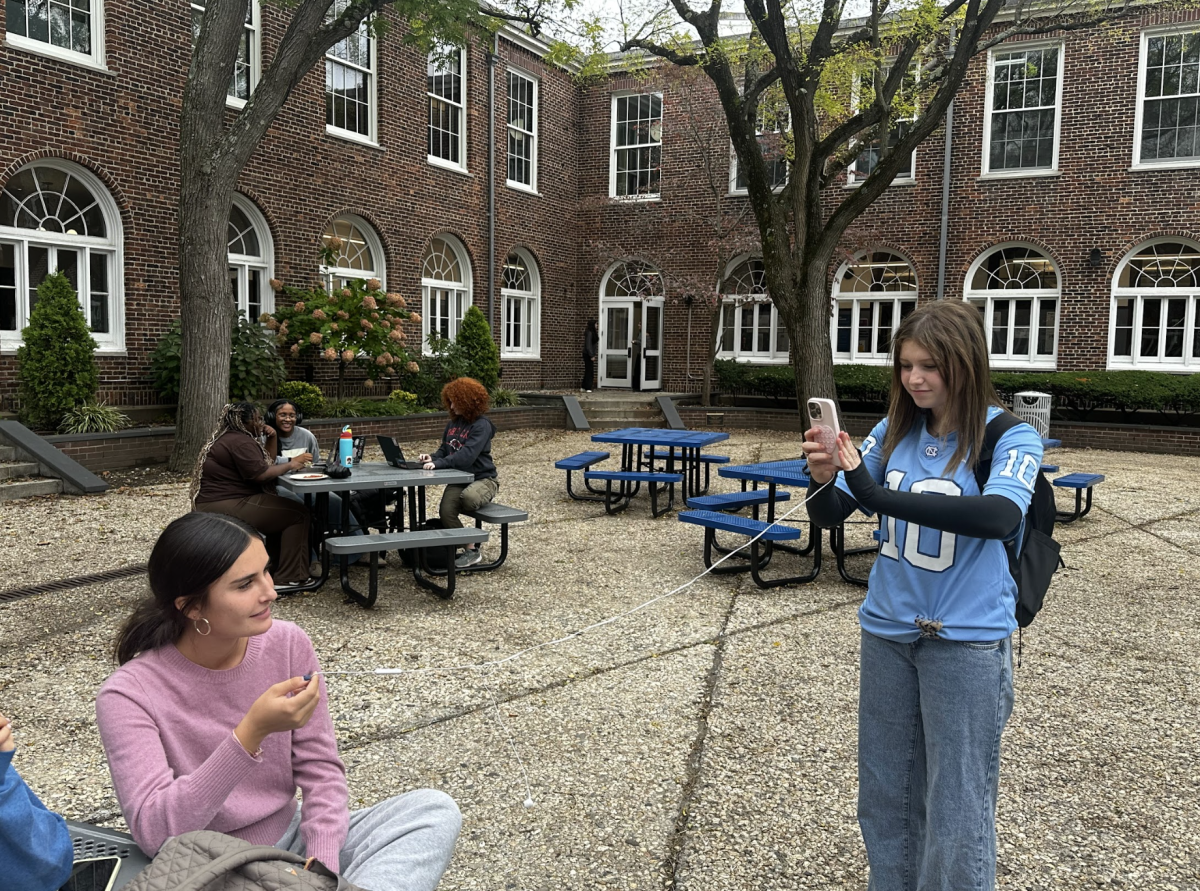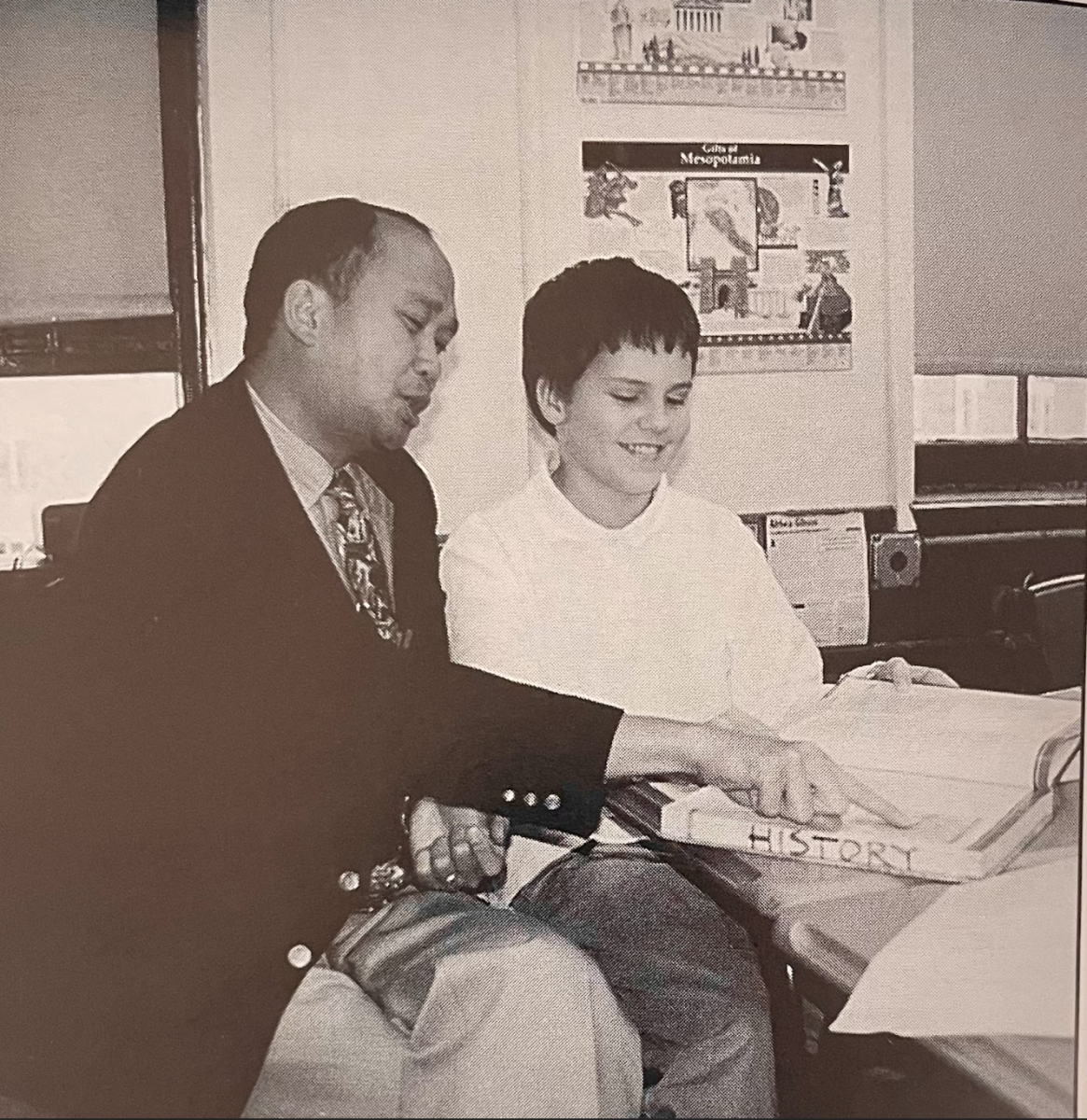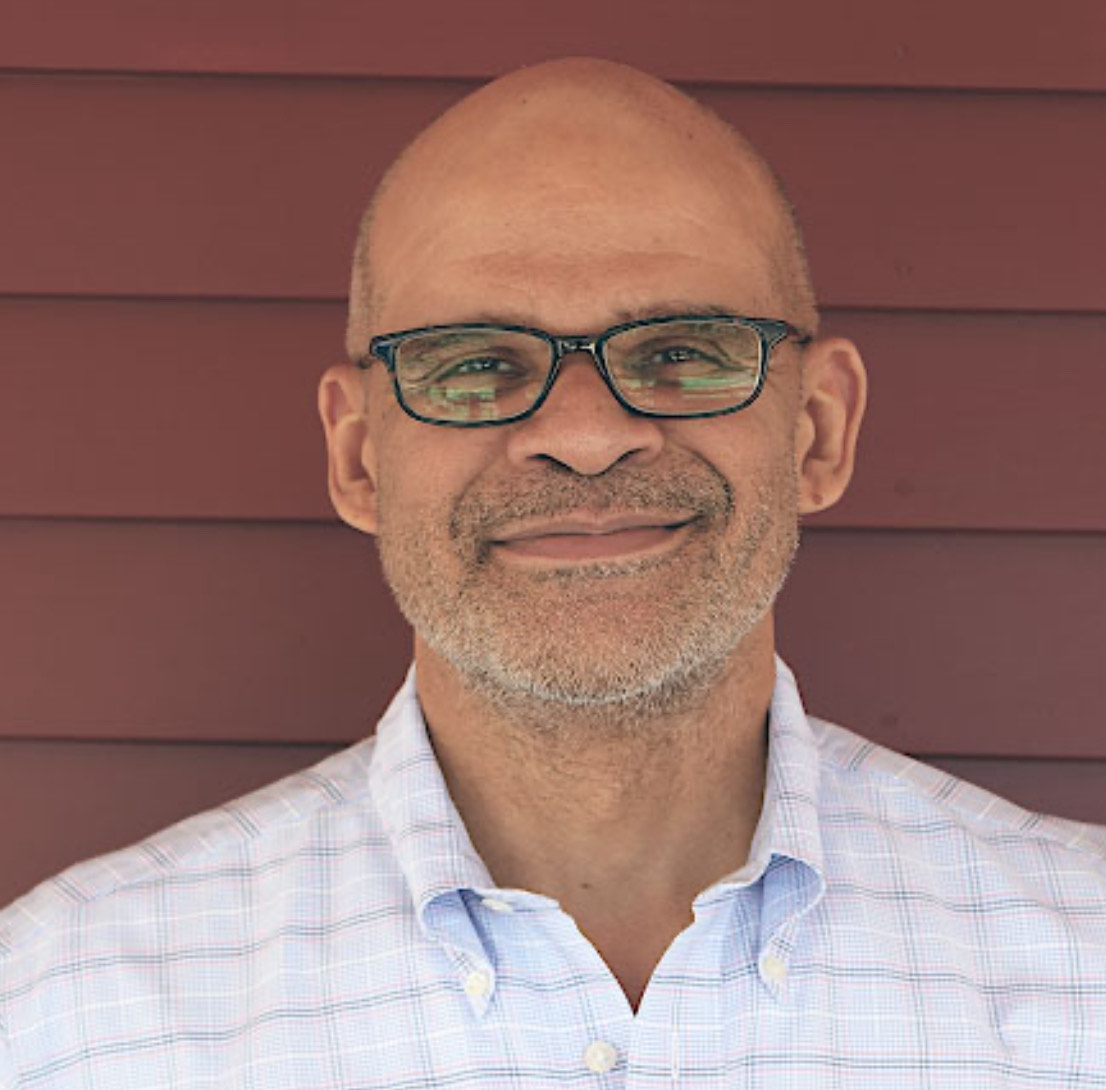If you visited the Poly campus between April 29 and May 3, you might have noticed a man named Lama Tenzin constructing sand art, specifically his sand mandala, in the library. A sand mandala is a Tibetan Buddhist tradition where a mandala of colored sand is made using a tool called a chakpur. Sand mandalas can portray many different themes, but the one that we see from Lama Tenzin represents the theme of compassion. This year marks the 5th year that Lama Tenzin has been visiting Poly and as he stays with my family during his visits, I’ve had the unique opportunity to build a relationship with him and learn from his teachings.
Lama Tenzin, a Buddhist monk originally from Tibet, grew up and studied Buddhism in India before moving to Geneva, New York. Lama Tenzin still lives in Geneva, where he formerly served as a professor of Asian language and culture at Hobart and William Smith Colleges.
This year Lama Tenzin stayed at Poly for five days. On Monday through Friday, he hosted morning meditation from 8:45-9:00 a.m. On Monday through Thursday, he hosted afternoon meditation from 3:40-4:15 p.m. On Tuesday and Friday he hosted open visits, where students and classes were welcome to go to the library and watch him work. Finally, on Friday at 11:30 a.m., he had a closing ceremony where he dismantled the mandala that he had been working on throughout the week.
I met Lama Tenzin when I was in kindergarten at the Ross School in East Hampton, where I first saw his construction and dismantling of the sand mandala. Even though I was very young, Lama Tenzin’s teachings and mandala-making spoke to me, so I told my mom about his visit. When I returned to Poly in first grade, I suggested to my mom that she propose to bring him onto the Poly campus so that my peers at Poly would be able to benefit from his teachings in the way that I did. Through the help of Lower School art teacher Heidi Zarou, and the Lower School art department we were able to bring Lama Tenzin to Poly.
Lama Tenzin has profoundly influenced my worldview, particularly his teachings on death and impermanence. Buddhists believe that the soul is reincarnated after death that embarks on a new life. While I am still exploring my beliefs, his optimistic outlook on death and the cycle of life has left a lasting impression on me.
Other students at Poly feel the positive impact of Lama Tenzin. Drew Waldman ’25 said, “I think Lama Tenzin has really positive messages to convey with the community. While when I was younger and he came to the Lower School I felt that my peers and I didn’t always understand what he was trying to say, as we’ve gotten older his messages have resonated with us deeply.”
Another impactful teaching of his is the concept of non-attachment. Lama Tenzin exemplifies the Buddhist belief that nothing in life is permanent by constructing and then later dismantling his sand mandala after a week. This practice, although seemingly melancholic, teaches us to cherish every moment and not take life for granted — a lesson of great value.
Lama Tenzin’s teachings on compassion and meditation could be incredibly beneficial in a school environment often filled with stress, pressure, and anxiety. Additionally, he provides a unique opportunity for everyone to learn about Buddhism, a relatively obscure religion in New York and the broader United States.

